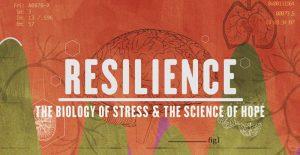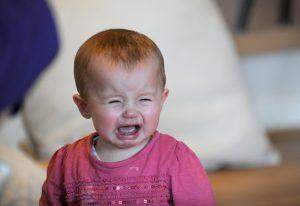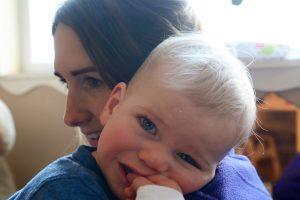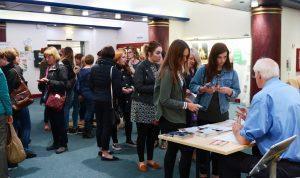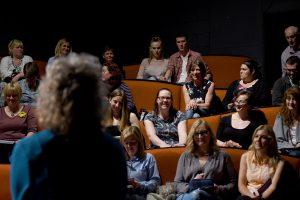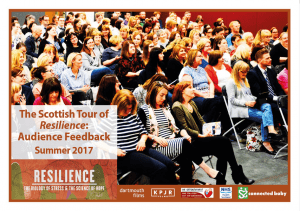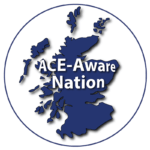What would it take to ensure that an entire nation was ACE-Aware? That’s what we’ve set out to ask in this unique two-day event.
How do we help every single citizen of Scotland to understand the impact of childhood distress? How do we use that scientific knowledge to foster greater kindness, compassion and hope within our culture? How do we ensure that relationships are at the heart of all our public policies and spending decisions?
These are the questions we will be exploring on 25th and 26th September 2018 – and in the months leading up to those two days. What would it take to make Scotland the world’s first ACE-Aware Nation?
The concept of Adverse Childhood Experiences was first introduced to the scientific research literature in 1998. It has taken 20 years for it to reach public consciousness. This is common within the field of public health. We need only think of laws on seat belts, drink driving and public smoking to realise public policy and behaviour changes often take that long. Adverse Childhood Experiences (ACES) seems to be following suit. Many of us wish it hadn’t taken that long, because children have paid the price of our slow pace. But it’s finally here now, and that’s worth celebrating. Let’s grab the hope that ACE-Awareness offers us and run with its potential.
In 2017, public hunger for ACE-Awareness exploded in Scotland.
You began to hear the term ‘ACES’ in staff rooms, at conferences, amongst friends. Its use blossomed on social media, in policy papers, in professional newsletters. More politicians began to speak about ACES, and governmental policy documents made greater commitments to address them. The First Minister herself identified ACES as one of the key challenges in public health. Nearly 2500 people flocked to see screenings of the documentary film Resilience, made by KPJR Films. Once that first national tour finished, having been hosted by a partnership between the two grassroots organisations, ReAttachment and connected baby, individual screenings sprung up everywhere across the country. People wanted to KNOW about the science of ACES.
This conference grew out of that hunger.
The two organisations hosting it – TIGERS and connected baby – wanted to do what they could to further public discussion. They knew how much a knowledge of ACES and attachment had enriched their own organisations. They wrote to Dr. Nadine Burke Harris, based in the USA and now fronting a global ACE-Awareness Movement, to ask her if she would consider coming to Scotland to help in our thinking. She said yes! And that was the day we got seriously stuck into planning this conference.
Our two organisations are only two voices amongst many who are working to spread the message of ACES, across Scotland and across the UK. We take courage from the fact there are now so many voices insisting on change. We want this conference to be one more opportunity to bring together those voices. By working collaboratively, we deepen the courage for cultural change that is so needed. We will not be able to prevent ACES or heal from them without the courage to face some tough truths.
Denial would be easier for our systems. Blame and judgement is what our culture has typically reached for, to make sense of the impact of ACES. We focus on behaviour, rather than asking ourselves about the distress that is driving behaviour. This is a point made at the very start of the documentary film Resilience, which has now had a profound impact on so many Scots. Denial is easier – but more costly.
We need to shift from ‘What’s wrong with you?’ to ‘What happened to you?’
Our culture has have lived for too long in denial and ignorance about the long-lasting impact of childhood distress. The science of ACES gives us the evidence we need to move out of denial – IF we can summon up the courage to act. ACE-Awareness is a tool that helps us to value more strongly relationships and community and care and love. These qualities sound mushy to our 21st century ears. They sound too emotional, too airy-fairy, too soft to be the values that could seriously guide public policy-making and cultural regeneration.
Yet, that is the core ACES message: relationships matter so much to human beings, they shape our very biology. KINDNESS MATTERS.
Deep in our human hearts, we have suspected this. But we haven’t really faced up to it, somehow. ACES gives us the hard core evidence that we need to embrace the importance of human connection.
As soon as we announced this event, excitement flooded in. We know there is huge interest out there in learning more about Adverse Childhood Experiences – and in learning what we can do to prevent ACES and heal from them. That’s why we invited some of the best speakers and leading thinkers in the country to be on the programme. That’s why we stoked our own courage and booked as large a venue as the Armadillo. We wanted to have as many seats available as we could. We look forward to welcoming people from across the UK to help us fill those seats and hear those speakers.
2018 promises to be a year of change in Scotland.
It is officially the Year of Young People. That also makes it the Year of Our Future. Sometimes, historic moments come along in which the possibilities for the future suddenly shift…
Once upon a time, people believed the earth was flat. It must have been truly mind-blowing to hear that, actually, it was beginning to look like the earth was round. Many people have described the insights offered by ACES as an equally profound moment. What? Childhood distress causes lifelong biological change. What? Childhood distress lies at the heart of our most endemic societal problems in health, education, social care, criminal justice, family struggles. That’s mind-blowing. It gives us new insights, new courage, new solutions. If we have the courage to act.
Let’s make our young people’s future one in which their distress is greeted with comfort and help. Let’s create communities that can offer that response. That’s the vision at the heart of this conference.
We can’t wait to welcome to this event all those who want to join us in discussing such a future. We have worked hard to identify funding opportunities that enable as much inclusion as we know how to create. We can’t wait to welcome Dr. Nadine Burke Harris to share with us the lessons she has learned.
Please come and join us. Everyone is welcome.

